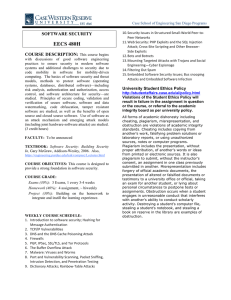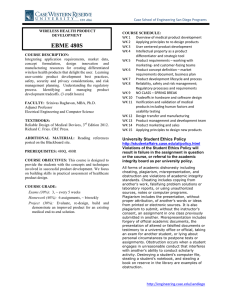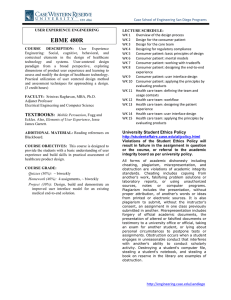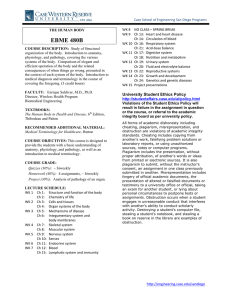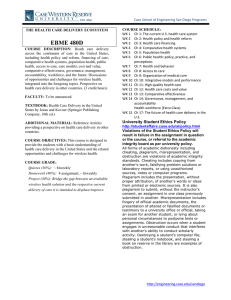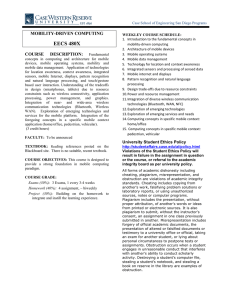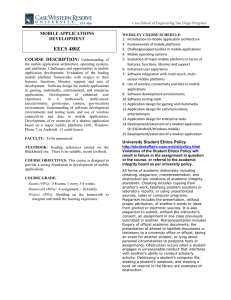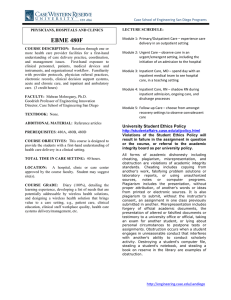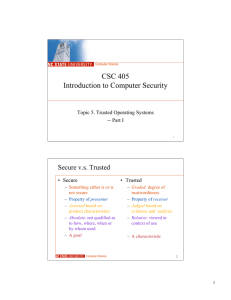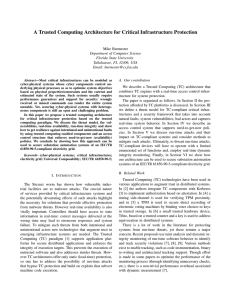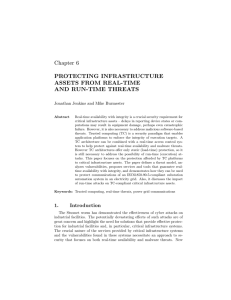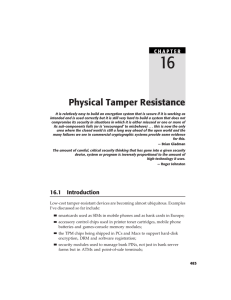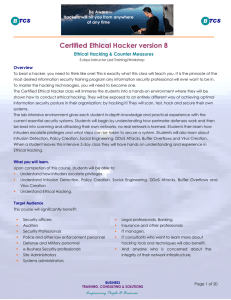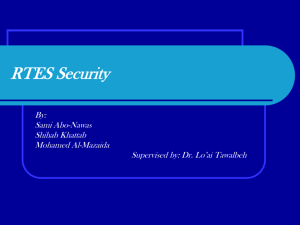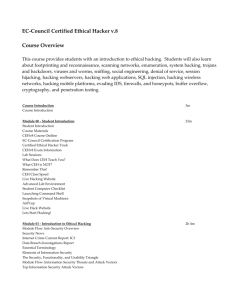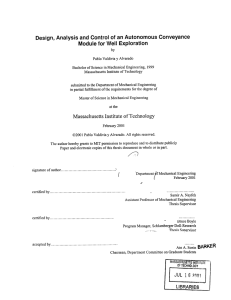480K - Case School of Engineering
advertisement
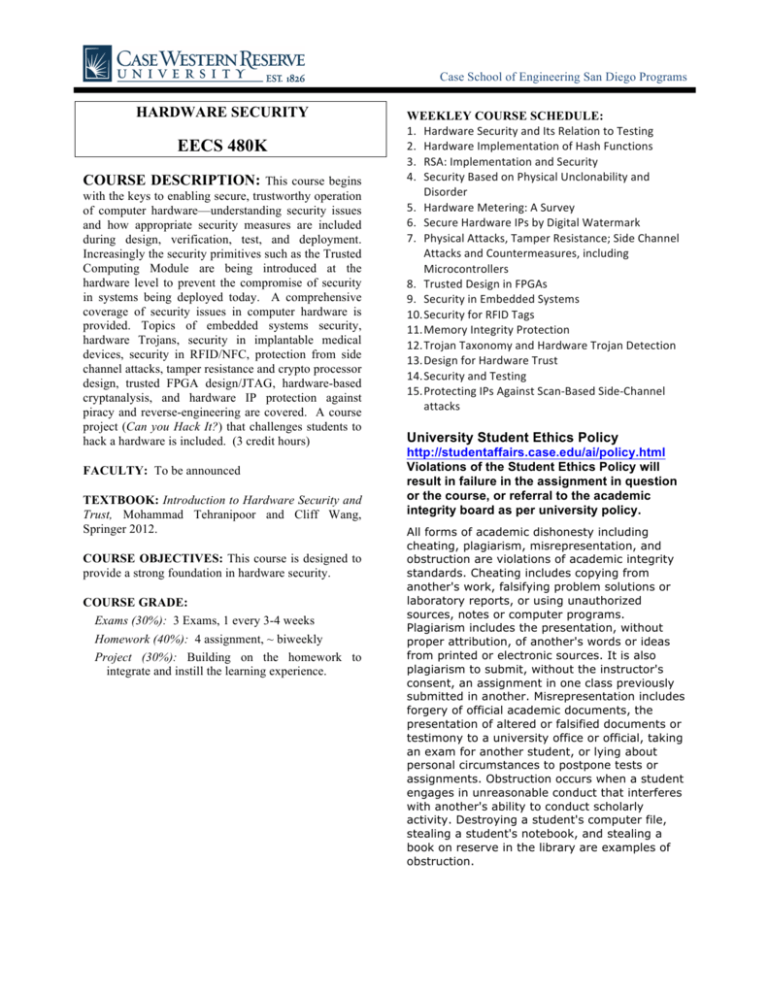
Case School of Engineering San Diego Programs HARDWARE SECURITY EECS 480K COURSE DESCRIPTION: This course begins with the keys to enabling secure, trustworthy operation of computer hardware—understanding security issues and how appropriate security measures are included during design, verification, test, and deployment. Increasingly the security primitives such as the Trusted Computing Module are being introduced at the hardware level to prevent the compromise of security in systems being deployed today. A comprehensive coverage of security issues in computer hardware is provided. Topics of embedded systems security, hardware Trojans, security in implantable medical devices, security in RFID/NFC, protection from side channel attacks, tamper resistance and crypto processor design, trusted FPGA design/JTAG, hardware-based cryptanalysis, and hardware IP protection against piracy and reverse-engineering are covered. A course project (Can you Hack It?) that challenges students to hack a hardware is included. (3 credit hours) FACULTY: To be announced TEXTBOOK: Introduction to Hardware Security and Trust, Mohammad Tehranipoor and Cliff Wang, Springer 2012. COURSE OBJECTIVES: This course is designed to provide a strong foundation in hardware security. COURSE GRADE: Exams (30%): 3 Exams, 1 every 3-4 weeks Homework (40%): 4 assignment, ~ biweekly Project (30%): Building on the homework to integrate and instill the learning experience. WEEKLEY COURSE SCHEDULE: 1. Hardware Security and Its Relation to Testing 2. Hardware Implementation of Hash Functions 3. RSA: Implementation and Security 4. Security Based on Physical Unclonability and Disorder 5. Hardware Metering: A Survey 6. Secure Hardware IPs by Digital Watermark 7. Physical Attacks, Tamper Resistance; Side Channel Attacks and Countermeasures, including Microcontrollers 8. Trusted Design in FPGAs 9. Security in Embedded Systems 10. Security for RFID Tags 11. Memory Integrity Protection 12. Trojan Taxonomy and Hardware Trojan Detection 13. Design for Hardware Trust 14. Security and Testing 15. Protecting IPs Against Scan-­‐Based Side-­‐Channel attacks University Student Ethics Policy http://studentaffairs.case.edu/ai/policy.html Violations of the Student Ethics Policy will result in failure in the assignment in question or the course, or referral to the academic integrity board as per university policy. All forms of academic dishonesty including cheating, plagiarism, misrepresentation, and obstruction are violations of academic integrity standards. Cheating includes copying from another's work, falsifying problem solutions or laboratory reports, or using unauthorized sources, notes or computer programs. Plagiarism includes the presentation, without proper attribution, of another's words or ideas from printed or electronic sources. It is also plagiarism to submit, without the instructor's consent, an assignment in one class previously submitted in another. Misrepresentation includes forgery of official academic documents, the presentation of altered or falsified documents or testimony to a university office or official, taking an exam for another student, or lying about personal circumstances to postpone tests or assignments. Obstruction occurs when a student engages in unreasonable conduct that interferes with another's ability to conduct scholarly activity. Destroying a student's computer file, stealing a student's notebook, and stealing a book on reserve in the library are examples of obstruction.
